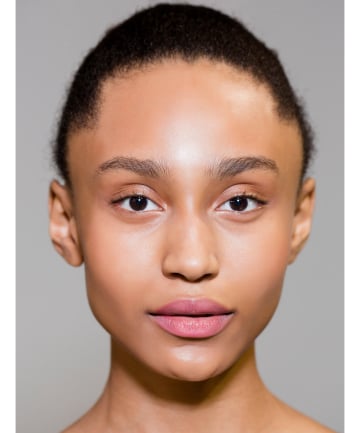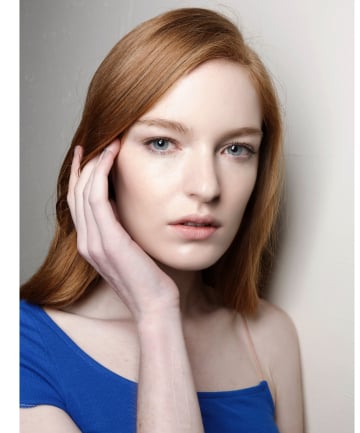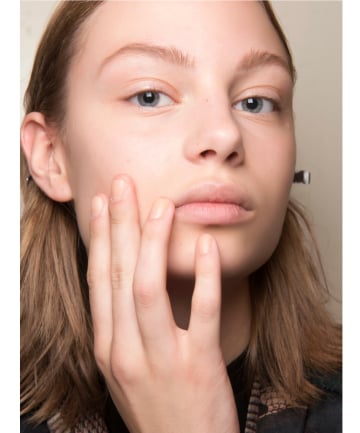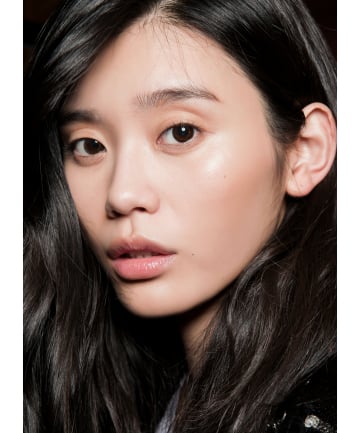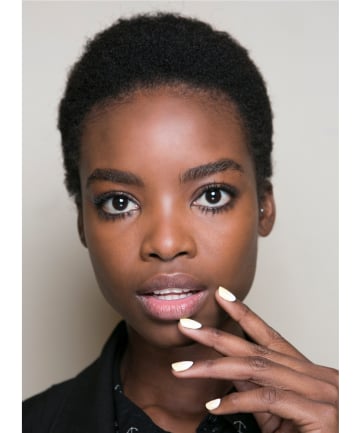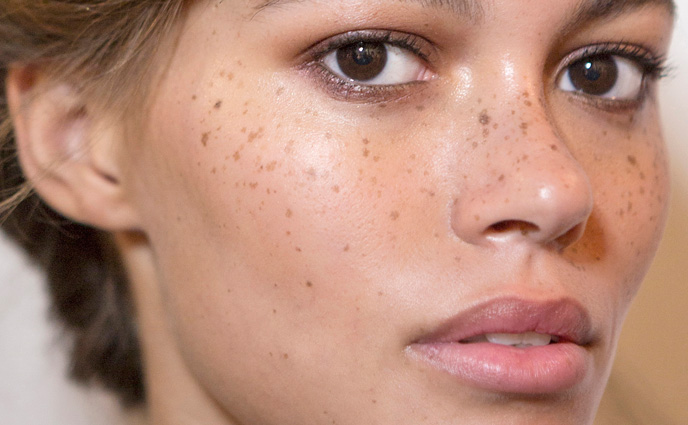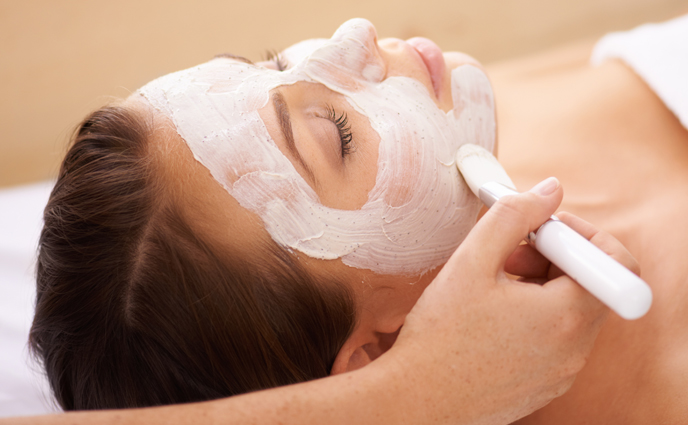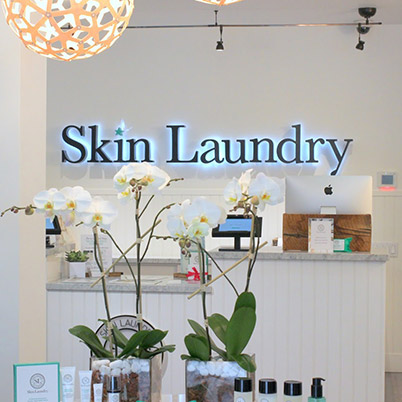Think of this like an interview. You get asked about your professional qualifications in job interviews and you should ask prospective estheticians for theirs. Lancer says it's important that the facial facility is linked with a medical facility as this ensures that there is a board-certified medical professional overseeing it. If you experience an allergic reaction, they will be able to handle it.
Most salons have strict policies about therapists and qualifications but Tomasso points out that a few states don't require an esthetic license to perform facial treatments. Besides having a license, it's essential to consider experience, any specializations and satisfied customers.
Image via Imaxtree
Most salons have strict policies about therapists and qualifications but Tomasso points out that a few states don't require an esthetic license to perform facial treatments. Besides having a license, it's essential to consider experience, any specializations and satisfied customers.
Image via Imaxtree
Some experts say that consultations aren't necessary because you'll have a chat about skin prior to your facial. Tomasso says most institutes build extra time into appointments for new clients. Newbies typically get an in-depth professional consultation that outlines the treatment course and highlights a customized home care regimen.
If you feel more comfortable with a separate consultation, don't be afraid to book one. Per Carr, most salons do offer consultations, so don't be afraid to take them up on the offer.
Image via Imaxtree
If you feel more comfortable with a separate consultation, don't be afraid to book one. Per Carr, most salons do offer consultations, so don't be afraid to take them up on the offer.
Image via Imaxtree
Anyone with sensitive skin is likely to be nervous about having a facial. Lancer stipulates that those with sensitive skin should only get facials at dermatology offices. They should also look for treatments that are specifically designed for sensitive skin. Jones says these procedures might follow the "less rule" to stop skin from reacting. This means using fewer products for less time, using less heat and applying less friction.
Hewett says experienced estheticians will be able to tell that skin is sensitive, but it's still important to make the facialist aware of allergies or special considerations. Mention if skin reacts negatively to certain ingredients or temperatures. Most treatments for sensitive skin will avoid using ingredients like very strong acids, alkaline products, artificial ingredients and fragrance, mineral oil and SD alcohols.
Image via Imaxtree
Hewett says experienced estheticians will be able to tell that skin is sensitive, but it's still important to make the facialist aware of allergies or special considerations. Mention if skin reacts negatively to certain ingredients or temperatures. Most treatments for sensitive skin will avoid using ingredients like very strong acids, alkaline products, artificial ingredients and fragrance, mineral oil and SD alcohols.
Image via Imaxtree
Adjusting Skin Care Routines
After booking an appointment, check with the esthetician whether there's anything you should avoid in your regular skin care routine. Carr says that they might advise against using exfoliators (liquid or granular). Hewett adds a person might want to stop using a retinol product at least a week before a facial.
Jones suggests avoiding waxing three days before the appointment as it can sensitize skin, making it not possible for exfoliation to be performed during the treatment.
No Makeup
It's best to show up for a facial without any makeup on. (That includes eye makeup.) Carr points out that it's still a personal choice so someone can come to their appointment in full makeup. Just be aware that some of the precious treatment time will be spent removing makeup.
Image via Imaxtree
After booking an appointment, check with the esthetician whether there's anything you should avoid in your regular skin care routine. Carr says that they might advise against using exfoliators (liquid or granular). Hewett adds a person might want to stop using a retinol product at least a week before a facial.
Jones suggests avoiding waxing three days before the appointment as it can sensitize skin, making it not possible for exfoliation to be performed during the treatment.
No Makeup
It's best to show up for a facial without any makeup on. (That includes eye makeup.) Carr points out that it's still a personal choice so someone can come to their appointment in full makeup. Just be aware that some of the precious treatment time will be spent removing makeup.
Image via Imaxtree
Pre-Facial Skin Talk
Prior to treatment, be prepared to have a detailed conversation about your skin, its problems and sensitivity. Tomasso says clients should also discuss what they'd like to see improved. Issues can include things like enlarged pores, excess oil, pigmentation and acne. Carr says to be honest as a professional can pick up on small details from your feedback and use them to transform skin during the treatment.
Relax
Facial first-timers might be nervous but try to chill. Carr says the more relaxed someone is, the more they will get out of treatment. She also encourages people to speak up if they're uncomfortable. For example, don't be shy about saying whether you're too hot or too cold or something is bothering you. It's also perfectly acceptable to say you'd prefer to save chatting until after the facial so you can relax during the treatment.
Extractions
People are often most intimidated by extractions, which are not for everyone. "Extractions are only intended if you have something to extract. If you unnecessarily have it done, you could end up with giant, scarred pores," says Lancer. Rest assured, extractions will always be discussed ahead of the facial, says Carr. Note that they're not all bad. When done properly, extractions keep skin clear, healthy and balanced.
Image via Imaxtree
Prior to treatment, be prepared to have a detailed conversation about your skin, its problems and sensitivity. Tomasso says clients should also discuss what they'd like to see improved. Issues can include things like enlarged pores, excess oil, pigmentation and acne. Carr says to be honest as a professional can pick up on small details from your feedback and use them to transform skin during the treatment.
Relax
Facial first-timers might be nervous but try to chill. Carr says the more relaxed someone is, the more they will get out of treatment. She also encourages people to speak up if they're uncomfortable. For example, don't be shy about saying whether you're too hot or too cold or something is bothering you. It's also perfectly acceptable to say you'd prefer to save chatting until after the facial so you can relax during the treatment.
Extractions
People are often most intimidated by extractions, which are not for everyone. "Extractions are only intended if you have something to extract. If you unnecessarily have it done, you could end up with giant, scarred pores," says Lancer. Rest assured, extractions will always be discussed ahead of the facial, says Carr. Note that they're not all bad. When done properly, extractions keep skin clear, healthy and balanced.
Image via Imaxtree


